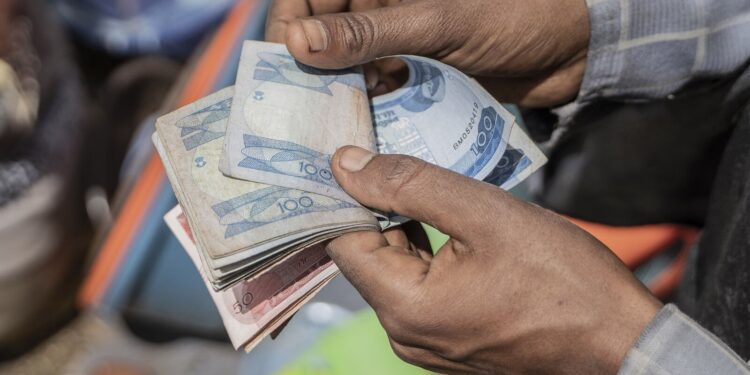Ethiopia Frees Its Currency to Lure Investors, Spur Growth
Ethiopia allowed its currency to trade freely in a bid to unshackle eastern Africa’s largest economy, lure investors and entice lenders including the International Monetary Fund to provide a new financing program.
The National Bank of Ethiopia permitted banks to buy and sell foreign currency at freely negotiated rates, according to a directive on its website. The central bank will make “only limited interventions to support the market in its early days and if justified by disorderly market conditions.”
The central bank’s strict control of the currency has caused a shortage of dollars in Africa’s most-populated nation after Nigeria, deterring investment needed for the economy to recover from a devastating two-year civil war that ended in 2022. Ethiopian authorities are in talks with the IMF to unlock more than $10 billion of funding, which has been contingent on currency reforms.
The birr closed at 57.77 against the dollar on Friday. On the parallel market, the currency usually exchanges at nearly double the official rate.
Ethiopia defaulted on its debt in December by failing to pay a $33 million coupon on a $1 billion eurobond that matures at the end of this year. Prime Minister Abiy Ahmed’s government failed to sell a stake in the nation’s state-owned telecommunications operator, while some textile companies shut operations in the nation.
Official bilateral creditors this month granted financing assurances to the Horn of Africa nation to help fast-track approval of a new loan by the IMF board. The guarantees mean that creditors, such as the Paris Club and China, have provided certainty that they will restructure their loans to Ethiopia in a way that’s consistent with the fund’s program.
The IMF’s board is expected to discuss Ethiopia’s request for a new financing program on Monday.
Ethiopia has been slowly opening up its economy. It plans to start an exchange to help finance the government’s plans. Abiy’s administration and the private sector are projected to have long-term financing needs of about 20 trillion birr ($351.3 billion) each over the next decade, according to the nation’s stock exchange.








